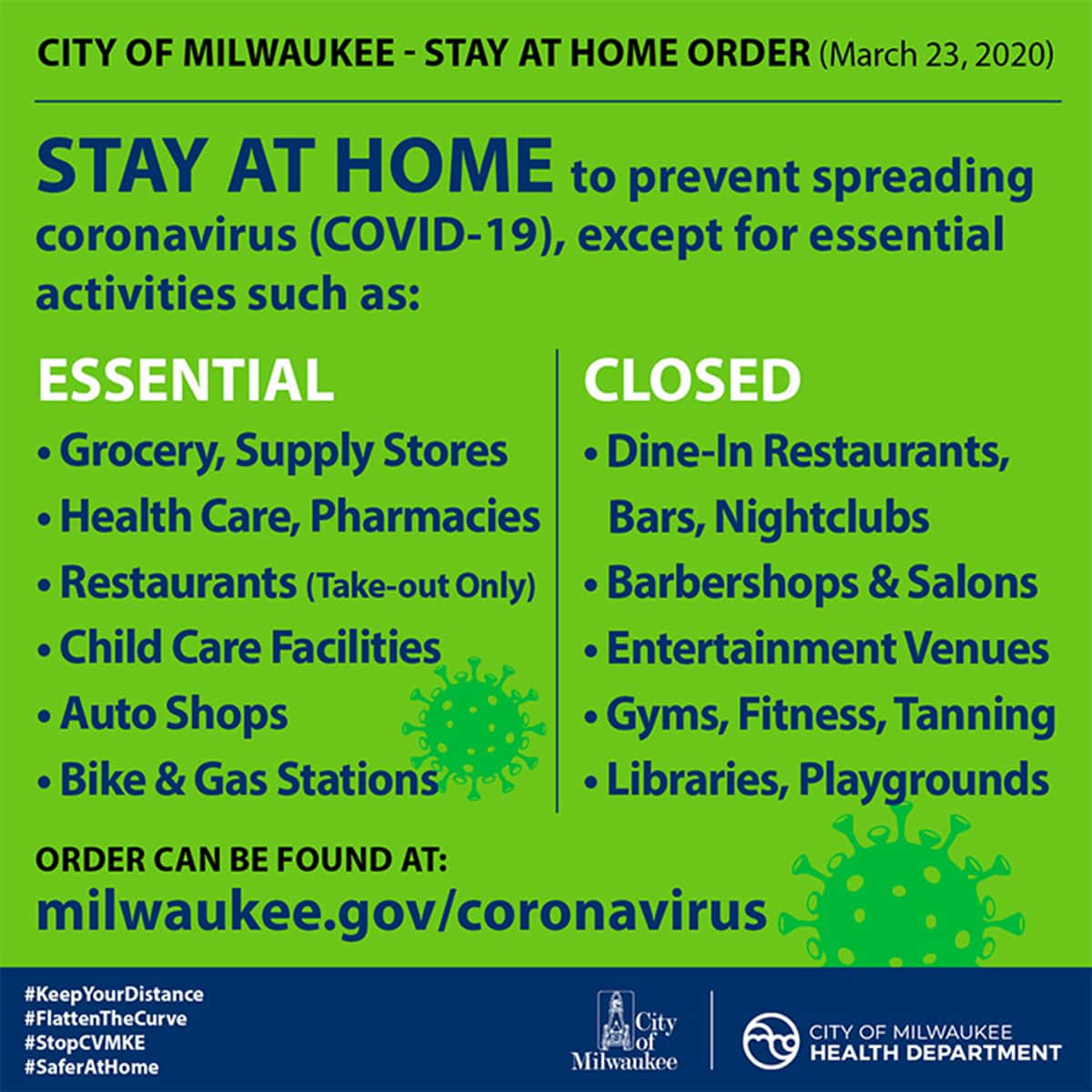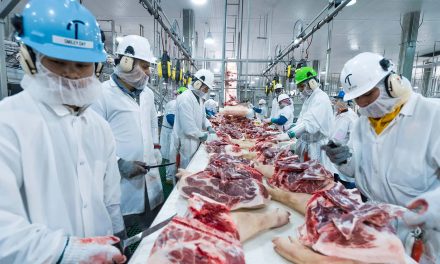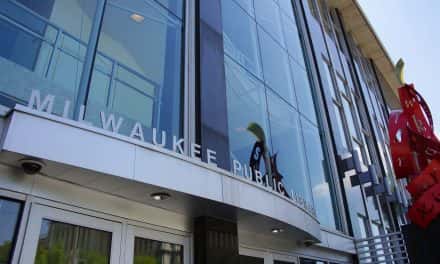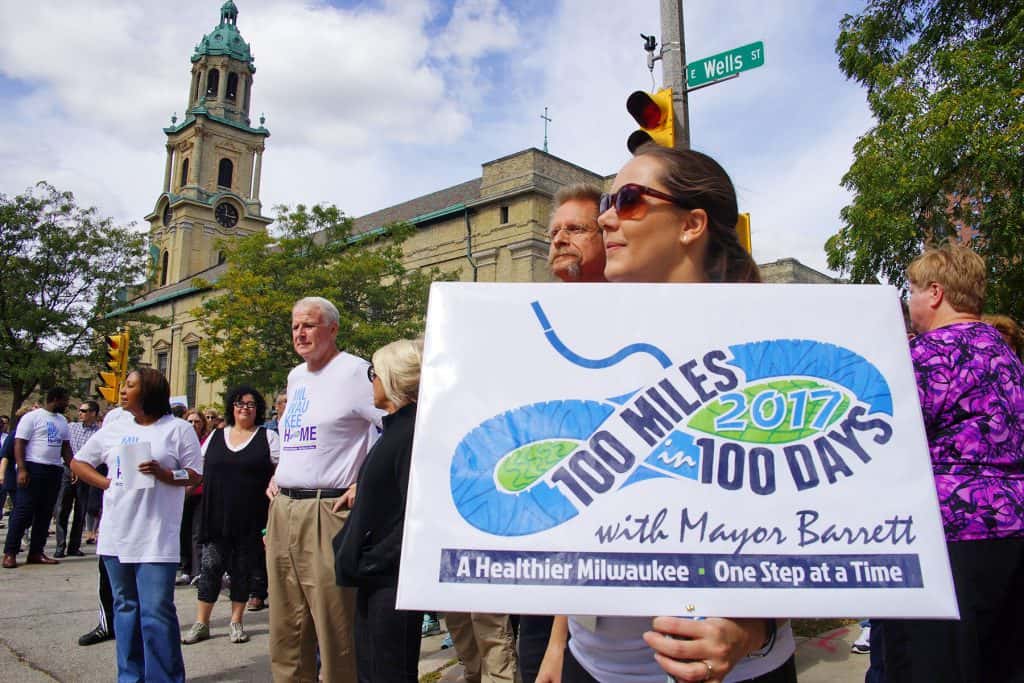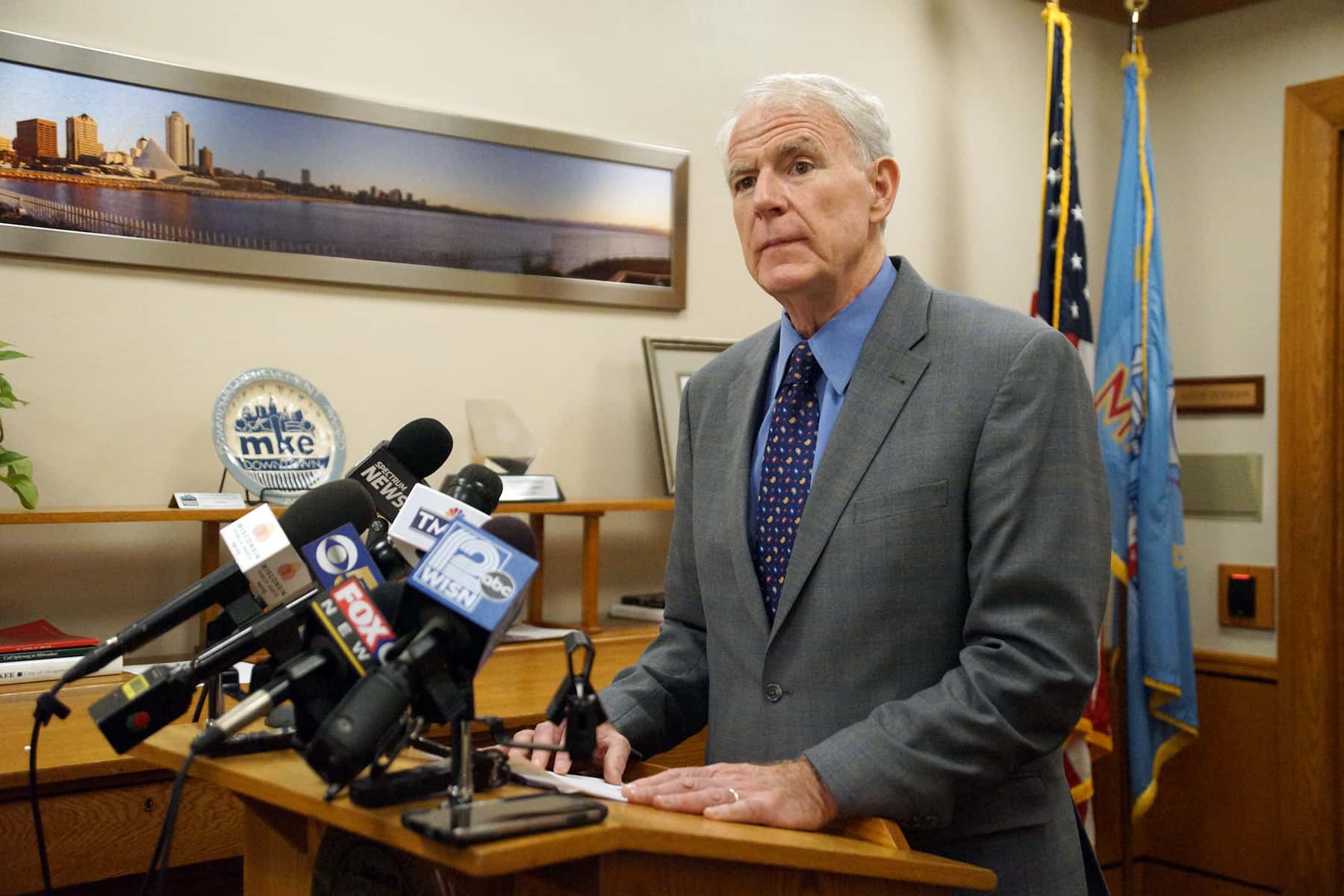
After the Wisconsin Supreme Court issued its controversial and reckless decision to overturn the state’s “Safer at Home” order on May 13, the Stay at Home order for the City of Milwaukee will remain in place.
“Our next step is to look at what the Wisconsin Supreme Court allows us to do at the local level, because we still have a lot of cases here,” said Mayor Barrett. “I would love us to be out of this, but we’re not out of this, and we’re going to have to take some action at the local level if the state is not taking any action.”
The City of Milwaukee Health Department issued a public health order on March 25, 2020 to protect public health and reduce the spread of COVID-19. That order remains in effect, including all provisions on public gatherings, restaurants, and bar operations.
“There are people who are still dying, and there are people who are still getting sick. We have a responsibility to the people that we represent to take the steps that are necessary to protect the public health,” added Mayor Barrett. “And that’s, that’s what we will be doing here.”
The Supreme Court of Wisconsin’s ruling against science and safety puts the health and safety of Wisconsinites across the state at risk by ending the Governor’s Safer at Home order, effective immediately, and requiring the Wisconsin Department of Health Services (DHS) to go through the Legislature’s rule making process to be able to respond to an epidemic.
“Up until now, Wisconsin was in a pretty good place in our battle against COVID-19. We had reached almost all our gating criteria. We had opened up 14,000 small businesses across the state, putting 90,000 folks back to work, and that was because of the good work of Wisconsinites across our state who banded together, stayed home, and stayed safe,” said Governor Evers. “Despite that good work, Republican legislators have convinced 4 justices to throw our state into chaos.”
Governor Evers said that the ruling would undo all the work and sacrifices made by Wisconsinites over the past few months. He urged everyone to continue to do their part to keep their families, neighbors, and communities safe by staying at home, practicing social distancing, and limiting travel.
“Deadly viruses don’t wait around for politicians and bureaucrats to settle their differences or promulgate rules,” added Governor Evers. “This virus has killed more than 400 of our family members, friends, and neighbors, and thousands more across our state are sick. I am disappointed in the decision, but our top priority has been and will remain doing what we can and what we have to do to protect the health and safety of the people of our state. After months of unproductive posturing, I hope the folks in the Legislature are ready to do the same.”
Public health experts have been clear that prematurely lifting social distancing measures will have serious and deadly consequences, especially for vulnerable communities. The Wisconsin Supreme Court chose to ignore those warnings, jeopardizing the health of all Wisconsinites, and further endangering communities of color who already faced the greatest risk from this virus.
“In the middle of the fight against this virus, we need reasonable rules in place that protect Wisconsinites’ health,” said Attorney General Josh Kaul. “In the meantime I ask all Wisconsinites to continue helping to fight the coronavirus by socially distancing and following other recommendations from public health experts.”
COVID-19 has laid bare the pervasive racial injustice that permeates every aspect of American society, deepening existing racial disparities, and infecting communities of color at terribly disproportionate rates.
“It was incredibly disheartening to hear remarks made in the courtroom that demeaned and discounted the experiences of those most affected by the pandemic,” said Chris Ott, executive director of the ACLU of Wisconsin. “The assertion that the scores of outbreaks occurring in meatpacking facilities were somehow acceptable because they don’t impact ‘regular folks,’ or the absurd equating of the safer-at-home order with Japanese-American internment, were painful to hear.”
Speaker Robin Vos and the Republican legislators who brought this case before the court and have thrown the state into chaos. They have provided no plan for how to respond to an escalation of sickness.
“The people of Wisconsin have done their part to advance our common good during this pandemic and now the WI Supreme Court has done the bidding of @SenFitzgerald & @repvos once again to put politics ahead of public health. It’s shameful they can’t put your health and safety first.” – U.S. Senator Tammy Baldwin via Twitter
“This is the same conservative Court that forced Wisconsinites to vote in-person in April. Over 65 of them now have COVID-19. This will threaten the life of all Wisconsinites. The GOP legislature & Court have made one thing clear: they think human life isn’t worth protecting. The Supreme Court in Wisconsin just threw out @GovEvers Safer at Home order. I say move the Supreme Court to Racine County for the next month and don’t allow working from home.” – U.S. Representative Mark Pocan via Twitter
“It was completely reckless of Republican politicians to overturn WI’s #SaferAtHome order without any plan to replace it. A patchwork of regulations means more confusion, more economic uncertainty and more strain on our front line health care providers.” – State Senator Jennifer Shilling via Twitter
The Milwaukee County order was signed by the health department officers for the municipalities of Cudahy, Franklin, Greendale, Greenfield, Hales Corners, Oak Creek, Bayside, Brown Deer, Fox Point, Glendale, River Hills, Shorewood, Whitefish Bay, South Milwaukee, St. Francis, Wauwatosa, West Allis, and West Milwaukee.
“We know that the fight to contain COVID-19 is fluid, ever-changing, and ultimately dependent on the widespread availability of a vaccine or treatment. We also know we are stronger in this fight together, and working together is going to be more critical than ever before. Since Safer at Home is no longer in effect, the 18 municipalities in suburban Milwaukee County and their 10 public health officials came together to sign a local order that provides guidelines on how local businesses can move forward in the coming 8 days. Our goal with this order is the same as yours – to reopen as safely and quickly as possible. With this order, the suburban municipalities in Milwaukee County have an order in place to protect the lives and livelihoods of our communities. This order states that bars and restaurants continue to be closed and gatherings of more than nine people are prohibited. We will continue to assess local needs and keep everyone informed.” – Milwaukee County
Full Text of Milwaukee's March 25 Stay at Home order
ORDER OF THE CITY OF MILWAUKEE COMMISSIONER OF HEALTH IMPOSING A CITY-WIDE “STAY-AT-HOME” REQUIREMENT TO MITIGATE THE SPREAD OF COVID-19
UNDER THE AUTHORITY OF WIS. STAT. § 252.03, THE CITY OF MILWAUKEE COMMISSIONER OF HEALTH (“HEALTH COMMISSIONER”) ORDERS THE FOLLOWING:
1. Purpose. The intent of this Order is to ensure that the maximum number of people self-isolate in their places of residence to the maximum extent feasible, while enabling essential services to continue, to slow the spread of COVID-19 to the maximum extent possible. When people need to leave their places of residence, whether to obtain or perform vital services, or to otherwise facilitate authorized activities necessary for continuity of social and commercial life, they should at all times reasonably possible comply with Social Distancing Requirements as defined in this Order. All provisions of this Order should be interpreted to effectuate this intent. This Order builds on the restrictions in Emergency Order #8 Updated Mass Gathering Ban issued by the Wisconsin Department of Health Services (“DHS”) on March 20, 2020. This Order supersedes any previous order of the Health Commissioner.
2. Stay at home or place of residence. With exceptions set forth below, all individuals currently living within the City of Milwaukee (“City”) are ordered to stay at home or at their place of residence. To the extent individuals are using shared or outdoor spaces, they must at all times as reasonably possible maintain social distancing of at least six (6) feet from any other person when they are outside their residence. All persons may leave their residences only for Essential Activities, Essential Governmental Functions, or to operate Essential Businesses and Operations, all as defined below.
Individuals experiencing homelessness are exempt from this Section, but are strongly urged to obtain shelter, and governmental and other entities are strongly urged to make such shelter available as soon as possible to the maximum extent practicable (and to use COVID-19 risk mitigation practices in their operation). Individuals whose residences are unsafe or become unsafe, such as victims of domestic or intimate partner violence, are permitted and urged to leave their home and stay at a safe alternative location. For purposes of this Order, homes or residences include hotels, motels, shared rental units, shelters, and similar facilities.
3. Non-essential business and operations must cease. All businesses with a facility in the City, except Essential Businesses and Operations as defined below, are required to cease all activities at facilities located within the City except Minimum Basic Operations, as defined below. For clarity, businesses may also continue operations consisting exclusively of employees or contractors performing activities at their own residences (i.e., working from home). All Essential Businesses are encouraged to remain open. To the greatest extent feasible, Essential Businesses and Operations shall comply with Social Distancing Requirements as defined in this Order, including by maintaining six-foot social distancing for both employees and members of the public at all times, including, but not limited to, when any customers are standing in line.
4. Prohibited activities. All public and private gatherings of any number of people occurring outside a single household or living unit are prohibited, except for the limited purposes expressly permitted in this Order. Nothing in this Order prohibits the gathering of members of a household or living unit. A landlord or rental property manager shall not enter a leased residential rental premises unless a maintenance emergency exists.
5. Prohibited and permitted travel. All travel, including, but not limited to, travel on foot, bicycle, scooter, motorcycle, automobile, or public transit, except Essential Travel and Essential Activities as defined below, is prohibited. People riding on public transit must comply with Social Distancing Requirements to the greatest extent feasible. This Order allows travel into or out of the City to perform Essential Activities, maintain Essential Businesses and Operations, and maintain Minimum Basic Operations.
6. Leaving home for essential activities is permitted. For purposes of this Order, individuals may leave their residence only to perform any of the following Essential Activities:
a. For health and safety. To engage in activities or perform tasks essential to their health and safety, or to the health and safety of their family or household members (including, but not limited to, pets), such as, by way of example only and without limitation, obtaining medical supplies or medication, visiting a health care professional, or obtaining supplies they need to work from home.
b. For necessary supplies and services. To obtain necessary services or supplies for themselves and their family or household members, or to deliver those services or supplies to others, such as, by way of example only and without limitation, canned food, dry goods, fresh fruits and vegetables, pet supply, fresh meats, fish, and poultry, and any other household consumer products, and products necessary to maintain the safety, sanitation, and essential operation of residences.
c. For outdoor activity. To engage in outdoor activity, provided the individuals comply with Social Distancing Requirements, as defined below, such as, by way of example and without limitation, walking, hiking, or running.
d. For certain types of work. To perform work providing essential products and services at Essential Businesses or Operations (which as defined below, includes Healthcare Operations, Human Services Operations, Essential Governmental Functions, and Essential Infrastructure) or to otherwise carry out activities specifically permitted in this Order, including Minimum Basic Operations.
e. To take care of others. To care for a family member, friend, or pet in another household, and to transport family members, friends, or pets as allowed by this Order.
f. To participate in the spring election. To vote, volunteer, or work at a facility for voting, including but not limited to polling places or any facility used for purposes of counting ballots.
7. Elderly people and those who are vulnerable as a result of underlying health condition should take additional precautions. People at high risk of severe illness from COVID-19 and people who are sick are urged to stay in their residence to the extent possible except as necessary to seek medical care. Nothing in this Order prevents the Health Commissioner from issuing and enforcing isolation and quarantine orders pursuant to Wis. Stat. ch. 252 and local ordinances.
8. Healthcare Operations. For purposes of this Order, individuals may leave their residence to work for or obtain services at any Healthcare Operations.
Healthcare Operations includes, but is not limited to: hospitals; medical facilities; clinics; dental offices; pharmacies; pharmaceutical, pharmacy, medical device and equipment, and biotechnology companies (including operations, research and development, manufacture, and supply chain); eye care centers, including those that sell glasses and contact lenses; home health agencies; mental health and substance abuse providers; other healthcare facilities and suppliers and providers of any related and/or any ancillary healthcare services; entities that transport and dispose of medical materials and remains; personal care agencies; hospices; allied health providers; acupuncturists; massage therapists; chiropractors; adult family homes; blood drives and blood banks, and CBD retailers.
Specifically included in Healthcare Operations are manufacturers, technicians, logistics, and warehouse operators and distributors of medical equipment, personal protective equipment (PPE), medical gases, pharmaceuticals, blood and blood products, vaccines, testing materials, laboratory supplies, cleaning, sanitizing disinfecting or sterilization supplies, and tissue and paper towel products. Healthcare Operations also includes veterinary care and all healthcare services provided to animals.
Healthcare Operations shall be broadly construed to avoid any impacts to the delivery of healthcare, broadly defined.
Healthcare Operations does not include fitness and exercise gyms and similar facilities, hair salons, barber shops, nail salons, day spas, tattoo parlors, body art establishments, and tanning facilities.
9. Human Service Operations. For purposes of this Order, individuals may leave their residence to work for or obtain services at any Human Services Operations that is providing services to the public and including state-operated, institutional, or community-based settings providing human services to the public.
Human Service Operations includes, but is not limited to: long-term care and assisted living facilities, as long as the facility follows all current DHS Recommendations for Prevention of COVID-19 in Long-Term Facilities and Assisted Living Facilities and all applicable U.S. Centers for Disease Control Recommendations; adult day care, adult day services, and supportive home care; group homes, shelter care facilities, runaway homes, residential care centers for children and youth, crisis stabilization centers, secured residential care centers for children and youth, Type 2 residential centers for children and youth, juvenile correction facilities, and Type 1 and Type 2 juvenile correction facilities; field offices that provide and help to determine eligibility for basic needs including food, cash assistance, medical coverage, child care, vocational services, rehabilitation services; developmental centers; adoption agencies; businesses that provide food, shelter, and social services, and other necessities of life for economically disadvantaged individuals, individuals with physical, intellectual, and/or developmental disabilities, or otherwise needy individuals.
Human Services Operations shall be construed broadly to avoid any impacts to the delivery of human services, broadly defined.
10. Essential Infrastructure. For purposes of this Order, individuals may leave their residence to provide any services or perform any work necessary to offer, provision, operate, maintain, and repair Essential Infrastructure.
Essential Infrastructure includes, but is not limited to: food production, distribution, and sale; construction (including, but not limited to, construction required in response to this public health emergency, hospital construction, construction of long-term care facilities, public works construction, and housing construction); building management and maintenance; airport operations; operations and maintenance of utilities, including water, sewer, gas, and electric (including energy production, distribution, and maintenance); Wisconsin Home Energy Assistance, Low Income Home Energy Assistance Program, and Public Benefits Energy Assistance Program offices, customer service centers, and public intake centers; distribution centers; oil and biofuel refining; roads, highways, railroads, and public transportation; ports; cybersecurity operations; flood control; solid waste and recycling collection and removal; internet, video, and telecommunications systems (including the provision of essential global, national, and local infrastructure for computing services, business infrastructure, communications, and web-based services).
Essential Infrastructure shall be construed broadly to avoid any impacts to essential infrastructure, broadly defined.
11. Essential Governmental Functions. For purposes of this Order, all public health personnel, first responders, emergency management personnel, emergency dispatchers, court personnel, law enforcement and corrections personnel, and others working for or to support Essential Businesses and Operations are categorically exempt from this Order. Further, nothing in this Order shall prohibit any individual from performing or accessing Essential Governmental Functions. Essential Governmental Functions means all services needed to ensure the continuing operation of the government agencies and provide for the health, safety, and welfare of the public, including but not limited to functions related to the conduct of elections.
12. Businesses covered by this Order. For the purposes of this Order, covered businesses include any for-profit, non-profit, or educational entities, regardless of the nature of the service, the function they perform, or its corporate or entity structure.
13. Essential Businesses and Operations. For the purposes of this Order, Essential Businesses and Operations means Healthcare Operations, Human Services Operations, Essential Infrastructure, and Essential Governmental Functions, and the following:
a. Stores that sell groceries and medicine. Grocery stores, bakeries, pharmacies, farmers’ markets, farm and produce stands, supermarkets, food banks, convenience stores, and other establishments engaged in the retail sale of canned food, dry goods, fresh fruits and vegetables, pet supply, fresh meats, fish, poultry, alcoholic and non-alcoholic beverages, and any other household consumer products (such as cleaning and personal care products), provided that such establishments comply with DHS Emergency Order #8. This includes stores that sell groceries, medicine, and also sell other non-grocery products, and products necessary to maintaining the safety, sanitation, and essential operation of residences and Essential Businesses and Operations;
b. Food and beverage production and agriculture. Food and beverage manufacturing, production, processing, and cultivation, including farming, livestock, fishing, baking, and other production agriculture, including cultivation, marketing, production, and distribution of animals and goods for consumption; and businesses that provide food, shelter, and other necessities of life for animals, including animal shelters, rescues, shelters, kennels, and adopting facilities;
c. Organizations that provide charitable and social services. Businesses and religious and secular nonprofit organizations, including food banks, when providing food, shelter, and social services, and other necessities of life for economically disadvantaged or otherwise needy individuals, individuals who need assistance as a result of the COVID-19 public health emergency, and people with disabilities;
d. Media. Newspapers, television, radio, and other media services;
e. Gas stations and businesses needed for transportation. Gas stations and auto-supply, auto-repair, and related facilities and bicycle shops and related facilities;
f. Financial institutions and services. Banks, credit unions, and other depository institutions; licensed financial service providers; personnel necessary to perform essential functions at broker dealers and investment advisor offices;
g. Hardware and supplies stores. Hardware stores and businesses that sell electrical, plumbing, and heating material;
h. Critical trades. Building and Construction Tradesmen and Tradeswomen, and other trades including but not limited to plumbers, electricians, exterminators, cleaning and janitorial staff for commercial and governmental properties, security staff, operating engineers, HVAC, painting, moving and relocation services, and other service providers who provide services that are necessary to maintaining the safety, sanitation, and essential operation of residences, Essential Activities, and Essential Businesses and Operations;
i. Mail, post, shipping, logistics, delivery, and pick-up services. Post offices and other businesses that provide shipping and delivery services, and businesses that ship or deliver groceries, food, alcoholic and nonalcoholic beverages, goods or services to end users or through commercial channels;
j. Educational institutions.
i. Pre-K-12 public, private, and charter schools – only for non-instructional purposes such as school board meetings, polling locations, and food distribution, and to facilitate distance learning;
ii. Colleges and Universities – for purposes of facilitating distance learning, performing critical research, or performing essential functions; residential facilities at educations institutions for the purposes of providing shelter, food, essential services and/or quarantine for student who should not or cannot travel, and to facilitate student relocation from residential facilities; sworn police departments at educational institutions, public or private; food production, distribution and sale at educational institutions for on campus residents.
k. Laundry services. Laundromats, dry cleaners, industrial laundry services, and laundry service providers;
l. Bars and restaurants for consumption off-premises. Bars, restaurants and other facilities that prepare and serve food and alcoholic beverages, but only for delivery or carry-out and only in compliance with DHS Emergency Order #8. Consistent with Emergency Order #8, bars include breweries, brewpubs, wineries, distilleries, and alcoholic beverage retailers. Schools and other entities that typically provide free food services to students or members of the public may continue to do so under this Order on the condition that the food is provided to students or members of the public on a pick-up and carry-out basis only. Schools and other entities that provide food services under this exemption shall not permit the food to be eaten at the site where it is provided, or at any other gathering site;
m. Supplies to work from home. Businesses that sell, manufacture, or supply products needed for people to work from home;
n. Supplies for Essential Businesses and Operations. Businesses that sell, manufacture, or supply other Essential Businesses and Operations with the support or supplies necessary to operate;
o. Transportation. Airlines, taxis, transportation network providers (such as Uber and Lyft), vehicle rental services, paratransit, and other private, public, and commercial transportation and logistics providers necessary for Essential Activities and other purposes expressly authorized in this Order;
p. Home-based care and services. Home-based care for seniors, adults, or children, including nannies who may travel to the child’s home to provide care, and other in-home services including meal delivery;
q. Professional services. Professional services, such as legal or accounting services, insurance services, real estate services (including appraisal and title services);
r. Child care. Child Care Settings, as defined in Emergency Order #6 Restricting the Size of Child Care Settings, issued by DHS on March 18, 2020, provided that Child Care Settings must operate in compliance with Emergency Order #6;
s. Funeral establishments. Funeral establishments, as defined in Wis. Stat. § 445.01(6), provided that funeral establishments shall comply with DHS Emergency Order #8, Social Distancing Requirements as defined in this Order, and shall not provide food service.
t. Hotels and motels. Hotels and motels, to the extent used for lodging and delivery or carry-out food services and in compliance with DHS Emergency Order #8.
u. Manufacturers, distribution, and supply chain for critical products and industries. Manufacturing companies, distributors, and supply chain companies producing and supplying essential products and services in and for industries such as pharmaceutical, technology, biotechnology, healthcare, chemicals and sanitization, waste pickup and disposal, agriculture, food and beverage, transportation, energy, steel and steel products, petroleum and fuel, mining, construction, national defense, communications, as well as products used by other Essential Businesses
and Operations.
v. Religious entities. Religious facilities, entities, and groups and religious gatherings to the extent they comply with DHS Emergency Order #8.
14. Minimum Basic Operations. For the purposes of this Order, Minimum Basic Operations include the following, provided that employees comply with Social Distancing Requirements, to the extent possible, while carrying out such operations:
a. The minimum necessary activities to maintain the value of the business’s inventory, ensure security, process payroll and employee benefits, or for related functions.
b. The minimum necessary activities to facilitate employees of the business being able to continue to work remotely from their residences.
15. Essential Travel. For the purposes of this Order, Essential Travel includes travel for any of the following purposes. Individuals engaged in any Essential Travel must comply with all Social Distancing Requirements as defined in this Order.
a. Any travel related to the provision of or access to Essential Activities, Essential Governmental Functions, Essential Businesses and Operations, or Minimum Basic Operations.
b. Travel to care for elderly, minors, dependents, persons with disabilities, or other vulnerable persons.
c. Travel to or from educational institutions for purposes of receiving materials for distance learning, for receiving meals, or any other related services.
d. Travel to return to a place of residence from outside the jurisdiction.
e. Travel required by law enforcement or court order.
f. Travel required for non-residents to return to their place of residence outside the City. Individuals are strongly encouraged to verify that their transportation out of the City remains available and functional prior to commencing such travel.
16. Social Distancing Requirements. For purposes of this Order, Social Distancing Requirements include: maintaining social distancing of six (6) feet between people; washing hands with soap and water for at least 20 seconds as frequently as possible or using hand sanitizer; covering coughs or sneezes (into the sleeve or elbow, not hands); regularly cleaning high-touch surfaces; not shaking hands; and following all other public health recommendations issued by DHS and the U.S. Centers for Disease Control.
17. Enforcement. This Order may be enforced under Wis. Stat. § 252.25.
18. Severability. If any provision of this Order or its application to any person or circumstance is held to be invalid, then the remainder of the Order, including the application of such part or provision to other persons or circumstances, shall not be affected and shall continue in full force and effect. To this end, the provisions of this Order are severable.
19. Effective Date. This Order shall become effective at 12:01 a.m. on March 25, 2020 and will continue to be in effect until it is extended, rescinded, superseded, or amended in writing by the Health Commissioner.
IT IS SO ORDERED.
Jeanette Kowalik, PhD, MPH, MCHES
Commissioner of Health

